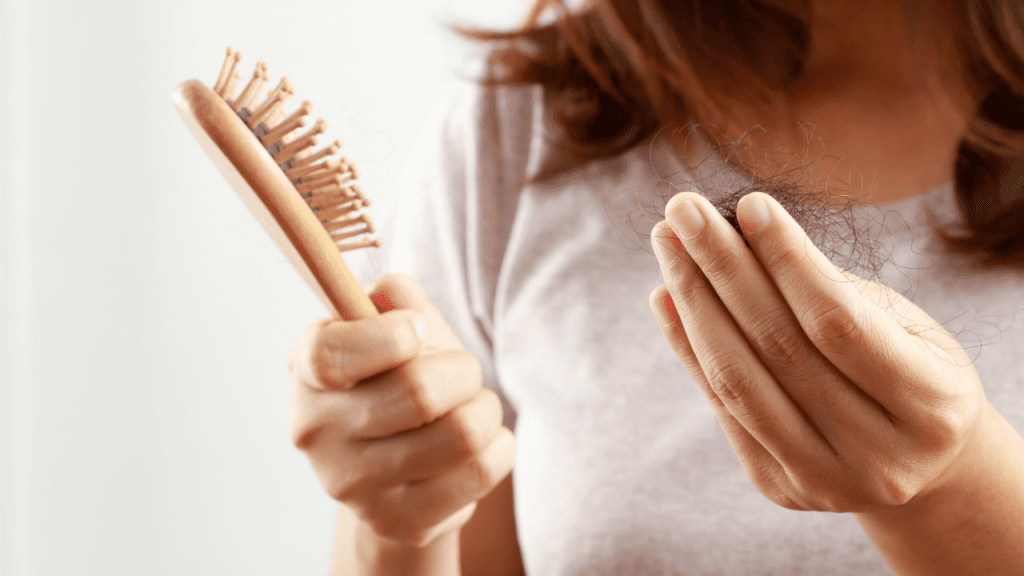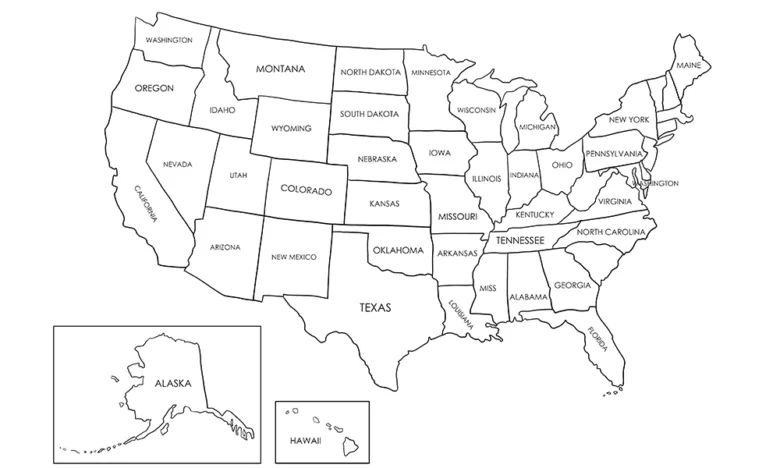
A Women’s Health Nurse Practitioner’s Advice
Unveiling the Unspoken Symptom: Hair Loss During Menopause and Perimenopause
During menopause and perimenopause, hormonal imbalances result in several symptoms: fatigue, hot flashes, insomnia, weight gain, anxiety, and moodiness. Notably, approximately 50% of women experience hair loss during this period, a symptom often overlooked or unspoken.
Understanding the Factors Behind Hair Loss in Women During Hormonal Transitions
Hair loss can have a significant impact on a woman’s self-esteem and confidence, leading to a negative domino effect on her overall well-being. Let’s discuss some of the factors that contribute to hair loss during perimenopause and menopause.
Key Contributors to Hair Loss: Hormonal Shifts, Stress, and Nutritional Deficiencies
Declining estrogen and progesterone levels are a primary cause of hair loss, as they shrink hair follicles and result in thinner strands. Some women’s affinity for 5-alpha testosterone can also cause hair loss while promoting unwanted hair growth in different body areas.
Managing Hair Loss: Strategies and Lifestyle Changes for Women in Menopause
Stress is another factor that can lead to hair loss, as an imbalance in cortisol levels can stunt hair regrowth. A thyroid imbalance can also affect hair growth and appearance, and poor nutrition can lead to nutrient and vitamin deficiencies that affect hair health.
Empowering Women: Seeking Support for Hair Loss During Hormonal Changes
If you’re experiencing hair loss during perimenopause and menopause, there are steps you can take to manage the symptoms. Eating a nutritious diet, eliminating processed foods, managing stress, regulating hormones, increasing protein intake, and consuming good fats can all help maintain healthy hair.
Taking Charge: Women’s Health Nurse Practitioner Offering Solutions for Hair Loss
In addition, taking vitamins D and B, especially biotin, can promote hair protein synthesis and prevent hair breakage and loss. Lifestyle habits play a major role in overall health, and managing stress, nutrition, and hormones can help maintain hair’s luster, volume, and fullness.
Don’t Let Hair Loss Define You: Embrace Healthier Habits for a Confident You
Remember, hair loss can be a difficult experience for women, and it’s important to take steps to manage it. Don’t be afraid to seek help from healthcare professionals or holistic practitioners who specialize in hormone balancing and nutrition. Taking care of yourself during this transition can have a positive impact on your overall well-being and quality of life.
Are you experiencing hair loss during perimenopause or menopause? Don’t suffer in silence – let’s talk! As a Women’s Health Nurse Practitioner, I specialize in hormone balancing and nutrition to help manage hair loss and other symptoms. Book a free consultation call with me today to learn more about how we can work together to support your overall well-being. Don’t let hair loss affect your confidence – take the first step towards healthier hair and a healthier you!










